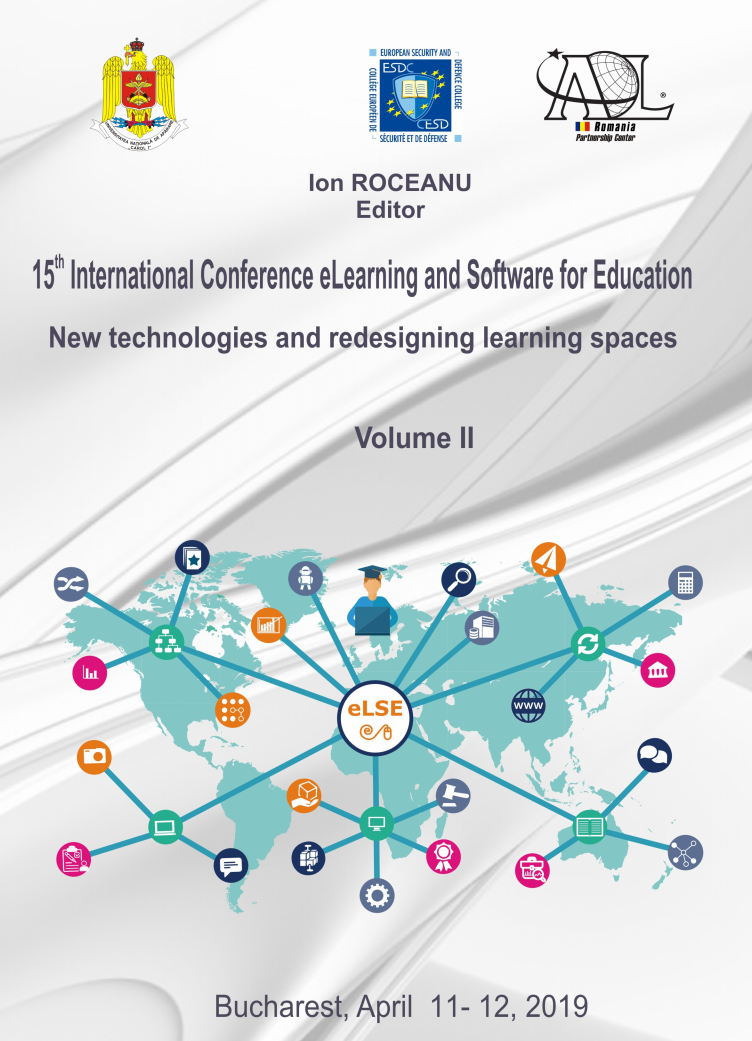Perspectives about New Learning Environments: eLearning Technologies
Perspectives about New Learning Environments: eLearning Technologies
Author(s): Ionuț-Claudiu POPASubject(s): Social Sciences, Education, Higher Education
Published by: Carol I National Defence University Publishing House
Keywords: Elearning; learning environments; marketing research;
Summary/Abstract: eLearning: This term was put into practice in 1998 by Jay Cross, the integrated Internet time group. Initially, elearningeuropa.info, a website of European e-learning programs that has been defined as the use of technologies, an Internet for improving the quality of learning by facilitating access to sources and services, was launched. The European Community also chose the "E-learning-Design for Tomorrow's Education" program on May 24, 2000, and has become a viable alternative to traditional education methods today, so it has been adopted by many universities, in particular due to the possibility of benefiting from continuous training or its benefits in various organizations. From a historical point of view, courses, tutorials and labs are delivered through conventional methods of providing technical education. With the development of open and distance communication technology and information, learning for technical education becomes reality. This online environment offers an incredible number of opportunities and facilities for both students and teachers, leading to a prosperous relationship of communication and collaboration between both camps, thus assimilating knowledge becoming more accessible, students being intimately connected with technology. At the same time, this concept has greatly contributed to lowering the cost of education and improving the education system, which is why in this article I conducted an analysis among a target group of 120 students of higher education institutions in Romania, for to identify their attitudes towards the use of eLearning platforms in the learning process, and also to conduct a qualitative research among 13 teachers in higher education institutions to identify the usefulness of eLearning platforms from both perspectives.
Journal: Conference proceedings of »eLearning and Software for Education« (eLSE)
- Issue Year: 15/2019
- Issue No: 02
- Page Range: 124-129
- Page Count: 6
- Language: English

